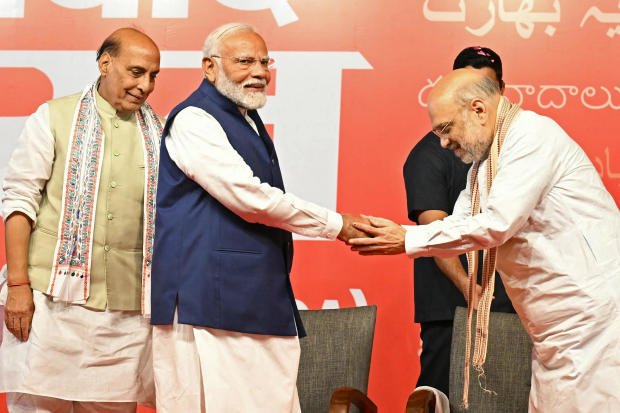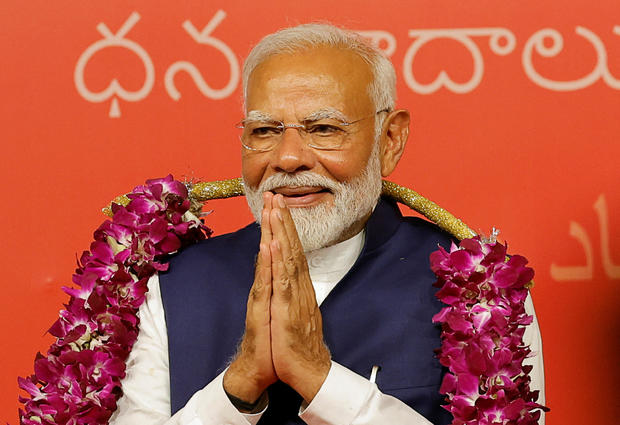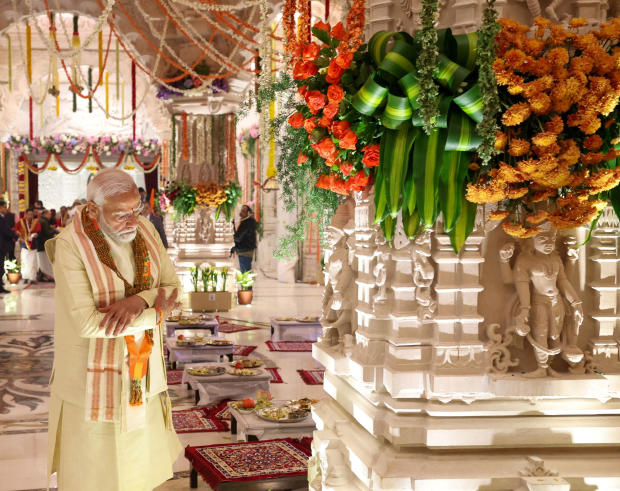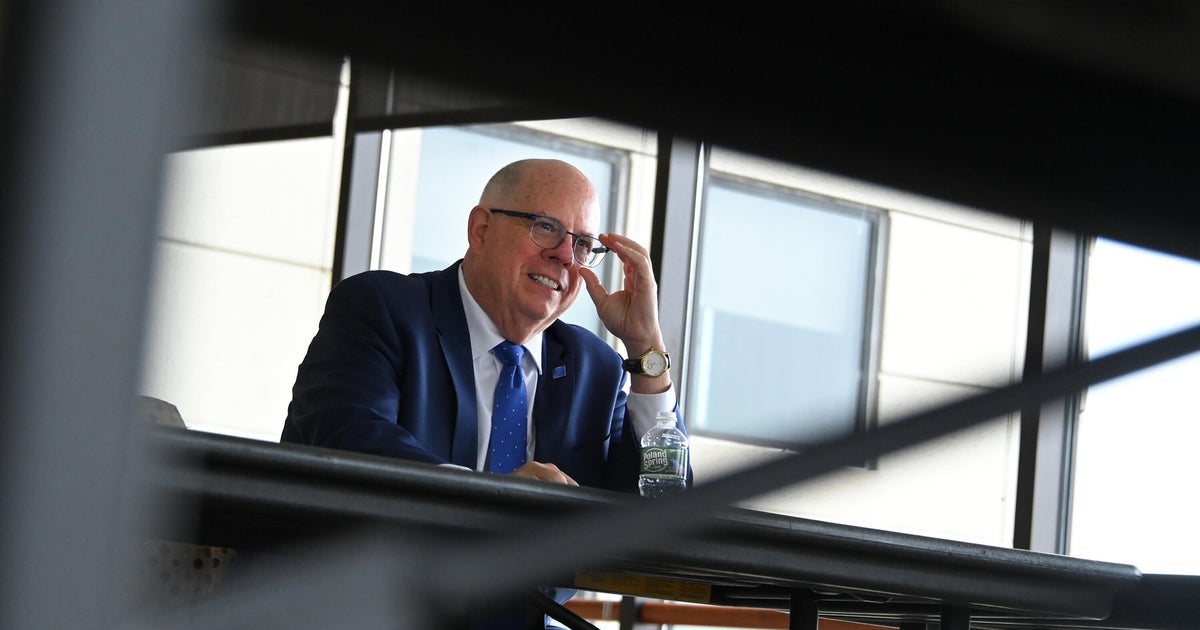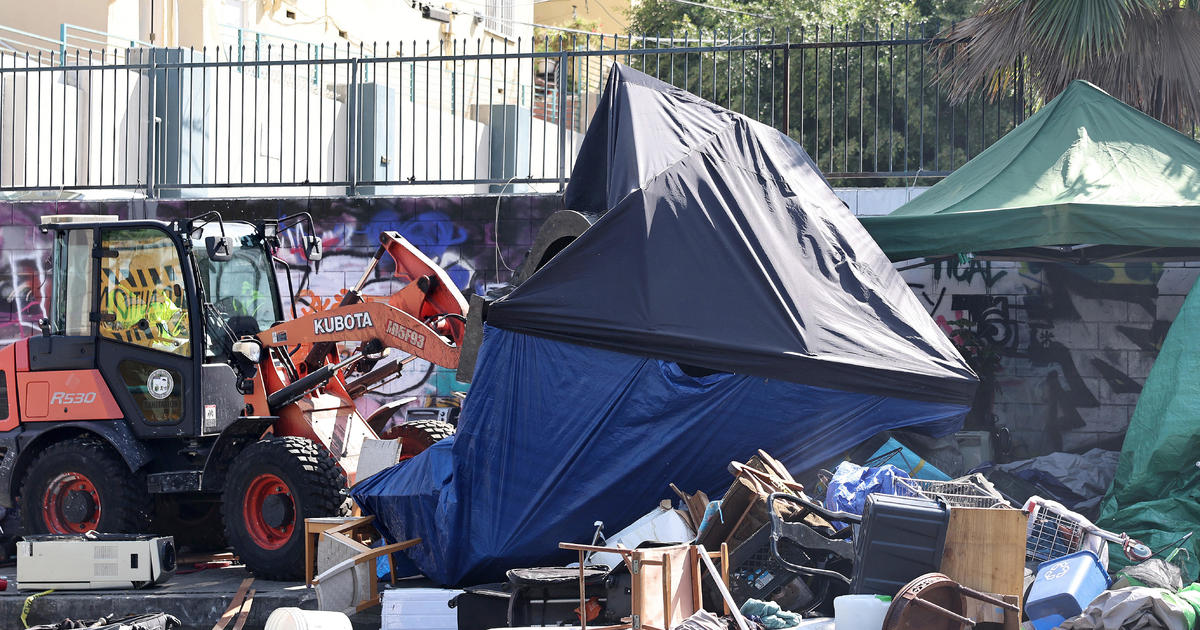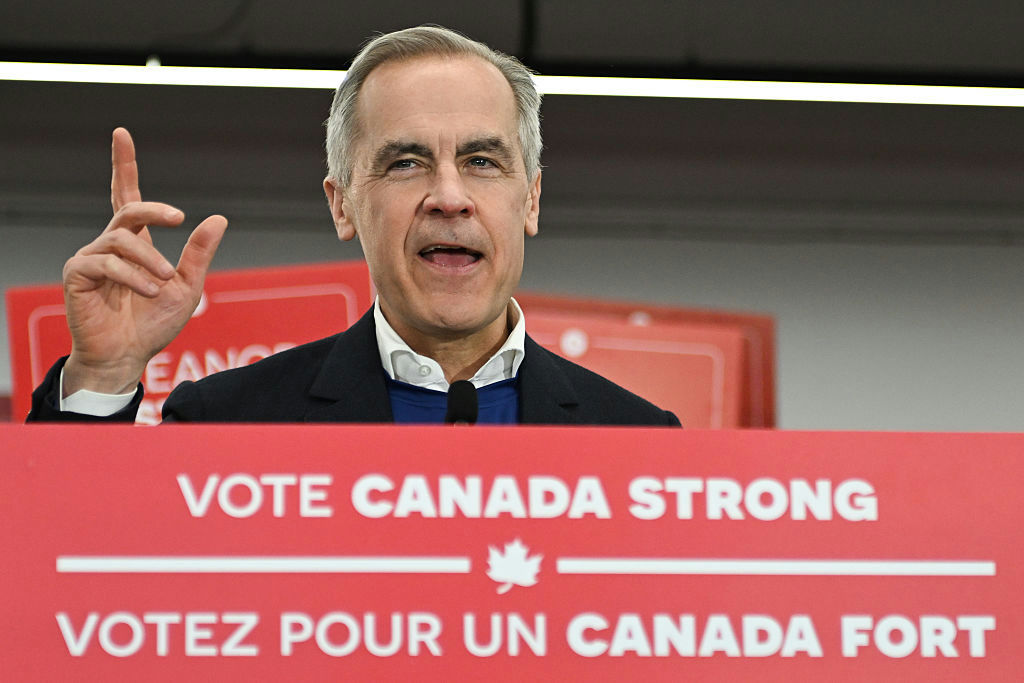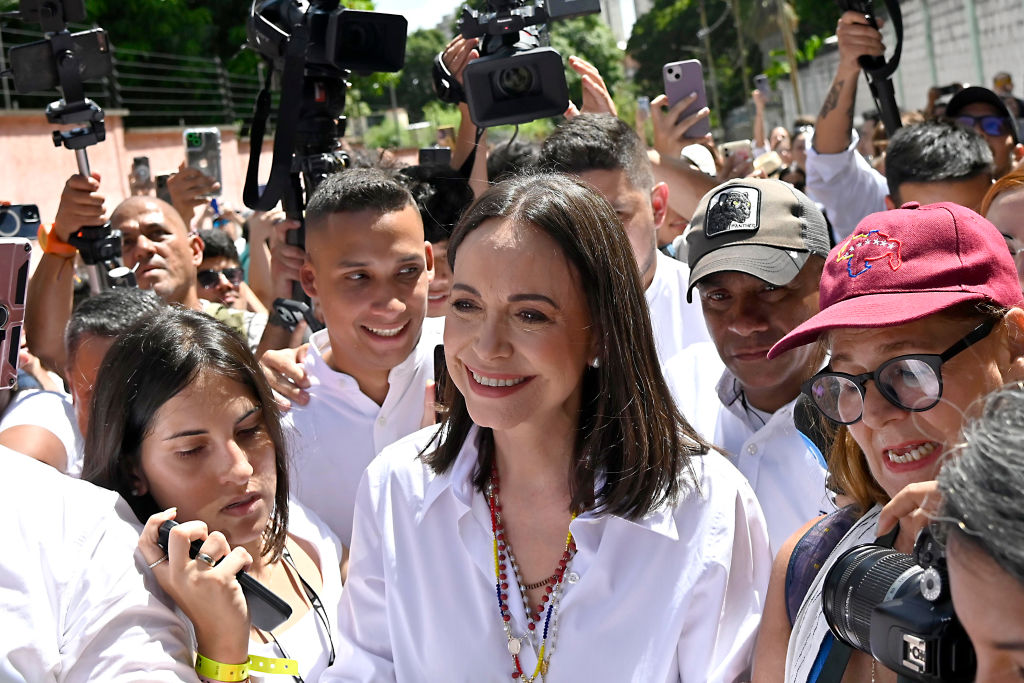India 2024 election results show Prime Minister Narendra Modi winning third term, but with a smaller mandate
New Delhi — India's 2024 election results show Prime Minister Narendra Modi set to win his third term in office, with the political alliance led by his Bhartiya Janata Party (BJP) on track to win a solid majority of the seats up for grabs in India's Parliament. Final numbers were expected later Tuesday, but the results of the world's biggest democratic elections appeared clear: Modi will keep his job, but with a smaller mandate than was widely expected or promised by his party.
For the first time ever, the giant of Indian politics for more than a decade will be forced to form a coalition government with smaller, albeit allied parties.
The final results were expected to maintain the balance revealed by preliminary ballot counting, which showed the BJP-led National Democratic Alliance (NDA) winning around 295 of the 543 seats in the Lok Sabha, the lower house of the Indian Parliament.
That would put the NDA easily over the 272-seat threshold required to form a new government and almost certainly see Modi carry on as premier — but it's a much smaller share of the votes than the BJP had promised with its slogan of "Abki Baar 400 paar," or "will cross 400 this time."
The BJP alone did not muster the votes to form a third single-party government under its leader.
It's also a much smaller majority than was predicted for the NDA by most exit polls, which had largely forecast a huge 350-seat win for the alliance.
More than 643 million people — among nearly a billion eligible voters — headed to the polls over the course of India's massive, seven-phase election. It was conducted over six seeks and was marked by a bitter campaign that played out along religious and sectarian lines. The voting was also held during a scorching heat wave that has been blamed for the deaths of about 80 people across the country, including at least 10 polling officials.
Overall, the NDA alliance appears set to lose more than 60 seats in comparison to its performance in the last general elections five years ago, and the rival INDIA alliance (Indian National Developmental Inclusive Alliance), led by the opposition Congress party, looks set to gain more than 100 new seats. That will give INDIA more than 230 seats in total – at a time when it had been all but written off by many political pundits and pollsters.
Still, speaking Tuesday evening at BJP headquarters, Modi remained upbeat about what was, regardless of margins, a victory, calling the results a "victory of the world's biggest democracy" and "a win for the 1.4 billion people of India."
"Every Indian is proud of the country's election process and credibility," declared the incumbent.
But the mood on Tuesday at the Congress party headquarters in Delhi was also celebratory, despite them not winning the election, as leaders declared the performance a sign of the "revitalization" of a party that has ruled India for more than 50 of its 77 years as an independent nation.
"It was a fight to save the constitution," senior Congress figure Rahul Gandhi told reporters Tuesday. "Congress and its alliance partners were not only fighting against the BJP, but also against the government institutions, intelligence agencies, half the judiciary which were captured by PM Modi."
"The people of India have saved the Constitution and democracy," he said in a tweet. "The deprived and poor population of the country stood with India to protect their rights."
The BJP-led alliance suffered major losses in the bellwether states of Uttar Pradesh, which sends 80 members to parliament, and Maharashtra, which has 48 seats, when compared to its performance in the last two general elections in 2019 and 2014, when they won record-breaking majorities.
The Congress-led alliance made major gains in both states, including in the Uttar Pradesh metropolis of Ayodhya, where Modi personally — and controversially — opened a vast new Hindu temple, the Ram Mandir, just months ahead of the election.
"I think the BJP played the Ram Mandir card too early," Dr. Subir Sinha, Director of the South Asia Institute at the University of London, told CBS News, referring to the temple in Ayodhya. Construction of the massive temple, on the site of a razed mosque, has been central to the BJP's Hindu nationalist politics for a long time, in a country deeply divided along religious lines.
"The BJP had thought it was a vote-getting machine," said Sinha.
The BJP alliance's reduced parliamentary majority may mean that some of Modi's unspecified, "big and tough decisions," which he'd vowed to make in the first 100 days of his third term, "will have to be off the table," Sinha predicted.
"The BJP relied on Modi's popularity to push through a lot of local candidates who were not popular themselves," Dr. Irfan Nooruddin, professor of Indian politics at Georgetown University, told CBS News.
He said the BJP's shrunken majority would make it harder for Modi's government to push through some of its anticipated reform measures and force him to work more flexibly with a new coalition government, "something that Prime Minister Modi was not used to."
Vote counting was expected to conclude Tuesday night and the swearing-in ceremony of the new government was expected on June 10.
